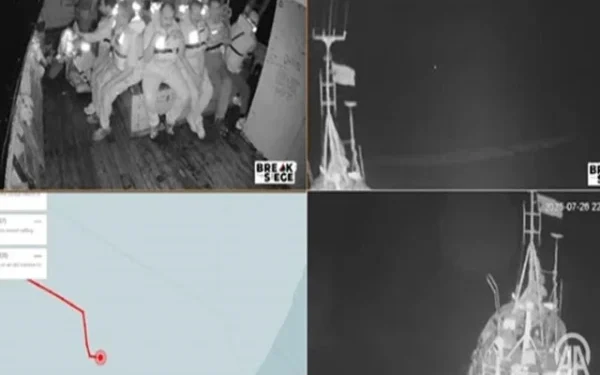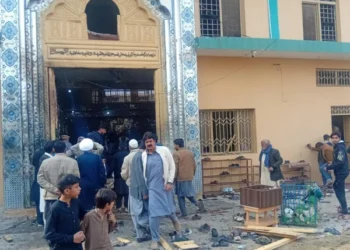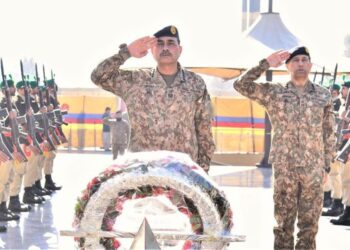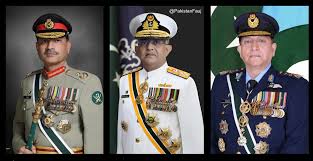Overview of the Incident
Gaza – In a controversial move condemned by humanitarian groups worldwide, Israeli naval forces attacked and seized the aid ship Hanzala, which was on a humanitarian mission from Italy to the besieged Gaza Strip. The vessel, part of a broader Freedom Flotilla Coalition initiative, was carrying urgent medical supplies, food, and baby formula for civilians suffering under Israel’s ongoing blockade of Gaza.
The ship was intercepted approximately 70 nautical miles from Gaza’s coastline, well before it could reach Palestinian waters. According to the International Committee to Break the Siege of Gaza, the crew issued multiple distress signals before communications were cut off by Israeli forces.
Details of the Seizure
The attack took place on Saturday morning, when Israeli naval units began to surround the Hanzala. Witnesses aboard the ship said that Israeli commandos forcibly boarded the vessel. Shortly afterward, all live transmissions and communication systems from the ship were shut down.
A chilling message from Emma Forio, a French humanitarian worker onboard, was posted to social media platform X (formerly Twitter) just moments before the ship went silent. “The Israeli army has arrived. We are throwing our phones into the sea. Stop the massacre in Gaza,” she wrote.
This last communication has since gone viral, drawing international attention to the fate of the ship’s passengers and the broader humanitarian crisis in Gaza.
The Mission of Hanzala
A Lifeline to the Besieged
Hanzala was part of a long-planned humanitarian flotilla aiming to deliver life-saving supplies to civilians in Gaza, where over two million people remain trapped in increasingly dire conditions. With hospitals running out of medicine, infants lacking proper nutrition, and electricity limited to a few hours a day, the supplies on board were not only necessary—they were vital.
The vessel carried:
- Tons of food staples, including rice, lentils, and flour.
- Medical equipment and medicine, particularly for trauma injuries and chronic conditions.
- Baby formula and diapers, urgently needed in Gaza’s overcrowded refugee shelters.
Who Was Onboard?
The ship carried 21 unarmed civilians, a mix of:
- Members of parliament from various European countries,
- Medical professionals volunteering to assist in Gaza’s overstretched hospitals,
- Journalists and documentarians, and
- Human rights activists from international NGOs.
All participants were reportedly on the mission in full accordance with international maritime law and had publicly declared the ship’s humanitarian purpose.
Organizers and Supporters of the Flotilla
Freedom Flotilla Coalition
The aid mission was organized by the Freedom Flotilla Coalition (FFC), an alliance of international human rights organizations that have been working for over a decade to break the Israeli blockade on Gaza. The coalition stated that Hanzala’s mission was peaceful and transparent.
International Committee to Break the Siege of Gaza
The International Committee to Break the Siege of Gaza, another key player in the mission, confirmed that Hanzala sent out emergency signals before being boarded. In a statement on social media, the group said:
“This was a non-violent humanitarian mission, attacked in international waters by an occupying power.”
Israeli Response and Justification
Warnings Ignored?
Israeli authorities had issued prior warnings to the ship’s organizers, stating that the vessel would not be permitted to reach Gaza and should divert to an Israeli port. The Israeli Defense Forces (IDF) claimed the blockade is necessary to prevent arms smuggling into the territory, which is controlled by Hamas, a group designated as a terrorist organization by Israel, the US, and the EU.
In a statement, an Israeli military spokesperson said:
“Any attempt to breach the naval blockade is a violation of Israeli sovereignty and security policy. The aid will be inspected and, if appropriate, transferred through authorized land crossings.”
However, critics argue that Israel’s ongoing blockade constitutes collective punishment, violating international law, and severely limits the flow of basic necessities into Gaza.
Background: Gaza’s Humanitarian Crisis
A Region Under Siege
Since 2007, Gaza has been under a strict land, sea, and air blockade imposed by Israel and Egypt, following Hamas’s takeover of the strip. The blockade has led to:
- Chronic shortages of food and clean water,
- Unemployment rates exceeding 45%,
- Minimal access to healthcare and medicine, and
- Deterioration of infrastructure, including hospitals and schools.
In 2024 and 2025, these conditions worsened amid repeated Israeli airstrikes, internal political instability, and a sharp decrease in international aid.
International Human Rights Reports
Numerous international agencies, including Human Rights Watch, Amnesty International, and the United Nations, have repeatedly warned that the situation in Gaza has reached catastrophic levels. UN Special Rapporteurs have described the blockade as “an open-air prison” and urged the international community to take action.
Reactions from Around the World
International Condemnation
The seizure of the Hanzala has triggered an outcry from humanitarian groups and several foreign governments. Human rights organizations condemned the attack as a violation of maritime law and a breach of the Geneva Conventions.
Statements of concern and condemnation have been issued by:
- The European Parliament’s Human Rights Committee, which demanded the immediate release of all those detained.
- Doctors Without Borders (Médecins Sans Frontières), which called the Israeli raid a “gross humanitarian obstruction.”
- Nobel laureates and global peace activists, who urged the United Nations to intervene.
Social Media Uproar
Hashtags such as #SaveHanzala, #FreeTheAidWorkers, and #EndGazaBlockade trended globally on social media platforms, with users calling for international sanctions against Israel and demanding the immediate release of the ship and its passengers.
Historical Precedent: Remembering the Mavi Marmara
The Hanzala incident draws strong parallels to the 2010 Mavi Marmara raid, in which Israeli forces killed nine Turkish activists aboard another Gaza-bound humanitarian flotilla. That raid sparked international diplomatic crises, particularly between Turkey and Israel, and resulted in multiple UN investigations.
Although no casualties have been reported in the Hanzala raid so far, the risk of escalation remains high, especially if any harm comes to the crew or the aid is not delivered to its intended recipients.
Legal and Political Implications
Violation of International Maritime Law?
Legal experts argue that Israel’s interception of the Hanzala, if conducted in international waters—as the Freedom Flotilla Coalition asserts—could constitute a violation of international maritime law under the United Nations Convention on the Law of the Sea (UNCLOS).
According to UNCLOS, naval blockades must not obstruct humanitarian access during times of conflict, especially if the ship is unarmed and delivering essential goods.
UN Action Awaited
The United Nations Security Council has yet to issue an official statement, though several member states have called for an emergency session. The incident may also be raised at the upcoming UN Human Rights Council meeting.
What Happens Next?
Uncertainty Surrounds Passengers’ Fate
As of now, the status and whereabouts of the 21 individuals aboard Hanzala remain unknown. Human rights groups are urging Israel to ensure their safety, grant them consular access, and allow the aid to be delivered without further delay.
Global Call for Accountability
The international community is closely watching the aftermath of the Hanzala incident. With tensions in the Middle East already high, this latest episode could significantly impact diplomatic relations, international aid policy, and public opinion regarding Israel’s blockade of Gaza.
Conclusion: A Humanitarian Mission Interrupted
The seizure of the aid ship Hanzala highlights the growing tension between humanitarian efforts and security policies in conflict zones. While Israel justifies its actions as necessary for national defense, critics argue that obstructing life-saving aid to civilians constitutes an unjust and disproportionate response.
As the world waits for more information on the Hanzala’s crew and the fate of its cargo, one thing is clear: the plight of Gaza’s civilians continues to deepen, and efforts to break the siege—both literally and figuratively—are far from over.

























